As we enter our third year of a pandemic, many of us are discouraged by the state of the world. Polarization is high, people feel lonely and disconnected, and many have burned out at work or been traumatized by overwhelming loss.
This year’s favorite books offer a mixture of advice on how to address these issues through shifting our worldview, improving our social interactions and institutions, and doing what we can to increase our personal well-being. Some books teach us about how to counteract burnout, prevent the spread of conspiracy theories, view trauma differently, or reduce polarization through intellectual humility and bridge-building. Others show us how we can increase our sense of meaning in life, develop closer friendships, learn from bittersweet emotions, or use body movement to feel better. All of these books inspire hope and offer practical advice on how to create a happier, more compassionate society.
While there are always too many worthy books to note, these were ones our staff and network of researchers found particularly interesting and helpful. We hope you, our readers, will be inspired to read and see for yourself how you can contribute to the greater good and enjoy a happier, healthier life.
Bittersweet: How Sorrow and Longing Make Us Whole, by Susan Cain
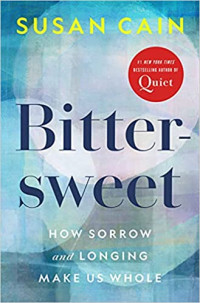 Crown, 2022, 352 pages. Read our review of Bittersweet.
Crown, 2022, 352 pages. Read our review of Bittersweet.
We all experience bittersweet feelings at times—when we are happy and sad simultaneously. It can happen when watching a fading sunset, attending our child’s wedding, or thinking of a long-lost love.
In Bittersweet, writer Susan Cain describes bittersweet feelings as “a tendency to states of longing, poignancy, and sorrow; an acute awareness of the passing of time; and a curious piercing joy at the beauty of the world.” Embracing these emotions, she argues, can make our lives richer and more meaningful.
Bittersweet feelings like longing can create momentum for changing what’s wrong in our lives and lead to a renewed sense of purpose, she says. While sometimes unpleasant, they can spur spiritual growth and artistic pursuits—the creativity born of melancholy. They can also foster a greater sense of connection with others, helping us understand human pain and be more empathic.
Her overall message? Don’t push bittersweet feelings aside; use them to help you grow.
Belonging: The Science of Creating Connection and Bridging Divides, by Geoffrey Cohen
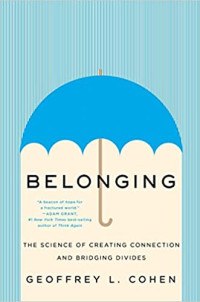 W. W. Norton & Company, 2022, 448 pages
W. W. Norton & Company, 2022, 448 pages
The social pain of “othering”—the disconnection, division, and loneliness created by treating people as “the other”—is so commonplace that there seems to be a “crisis of belonging,” explains psychologist Geoffrey Cohen. But Cohen hopes that this crisis can be overcome with guidance from scientific insights that help us nurture belonging in our individual daily lives and promote social change on a wider scale.
Through weaving personal stories with research, Cohen explains how to promote connection in schools, workplaces, health care, and policing. He also provides practical strategies to build bridges in our daily lives. For example, he suggests considering the role a situation plays in someone’s behavior rather than reflexively judging them as intrinsically flawed. He also recommends crafting situations in our lives to foster belonging, like when a teacher addresses his students with honorifics like “Mr. Garcia” to express respect.
“Belonging may seem like a comfortable but inessential luxury,” writes Cohen. But Belonging makes clear that it’s not only critical for individual well-being, it’s the foundation for a thriving society.
Platonic: How the Science of Attachment Can Help You Make—and Keep—Friends, by Marisa Franco
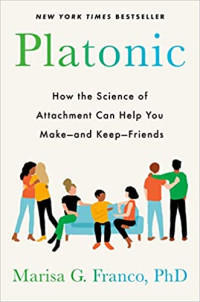 G.P. Putnam's Sons, 2022, 336 pages. Read our review of Platonic.
G.P. Putnam's Sons, 2022, 336 pages. Read our review of Platonic.
Friendships are wrongly undervalued in our society, says psychologist Marisa Franco in her new book. While we may prioritize familial or romantic relationships, it’s friendships that often provide us with our greatest sense of belonging, intimacy, and happiness.
“We choose our friends, which allows us to surround ourselves with people who root for us, get us, and delight in our joy,” she writes. “Through friendship, we can self-select into some of the most affirming, safe, and sacred relationships of our lives.”
Franco’s book not only makes the case for developing friendship, but also shows us how to go about it: by reaching out, being vulnerable and authentic, offering affection and generosity, and managing conflicts wisely. While our attachment style can sometimes interfere with making friends, Franco gives practical guidance on how to manage psychological (and other) blocks to friendship, paving the way to deeper relationships.
I Never Thought of It That Way: How to Have Fearlessly Curious Conversations in Dangerously Divided Times, by Monica Guzmán
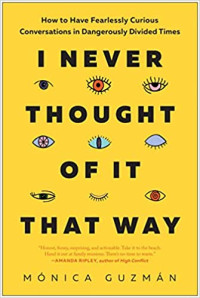 BenBella Books, 2022, 288 pages. Read an essay adapted from I Never Thought of It That Way.
BenBella Books, 2022, 288 pages. Read an essay adapted from I Never Thought of It That Way.
When politics gets too polarized, people start to think they have all the answers—and they’re not interested in anything the “other side” has to say. But bridge-builder Monica Guzmán offers a radical proposition in her new book: that we recognize our own intellectual limitations and get curious about other people’s beliefs.
Guzmán, a journalist and senior fellow at Braver Angels, shares stories from across the country (and within her own household) of people who have been open and curious enough to get to “I never thought of it that way” moments—that point in a conversation when you see beyond your own worldview, beliefs, and perspective. Along the way, she offers tips for staying curious, having more productive conversations, and avoiding the traps that pull us back into our silos.
If today’s polarization has you beyond frustrated, Guzmán’s book may offer you some hope—and enough nitty-gritty advice—to make bridging our differences actually seem possible.
Happier Hour: How to Beat Distraction, Expand Your Time, and Focus on What Matters Most, by Cassie Holmes
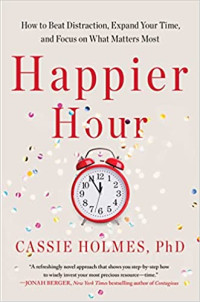 Gallery Books, 2022, 320 pages. Read our review of Happier Hour.
Gallery Books, 2022, 320 pages. Read our review of Happier Hour.
Many people feel they don’t have enough hours in the day to do everything they’d like to do. But in Happier Hour, researcher Cassie Holmes shows why (for many people) this attitude is wrong-headed. With some simple changes, she argues, we can prioritize what matters most and craft a happier life.
Holmes encourages us to evaluate our current use of free time and how much pleasure or meaning we derive from our activities. Then, she offers evidence-based tips on how to expand our sense of time and use time more wisely—by lessening technology use, nurturing relationships, bundling unpleasant activities with pleasant ones, being present, experiencing awe and gratitude, and more.
Even the busiest among us can be more intentional about how we spend time—and should aim for more meaningful, positive experiences if happiness is our goal, she argues. “This is the time of your life, and you can’t let it go to waste.”
The Burnout Challenge: Managing People’s Relationships With Their Jobs, by Christina Maslach and Michael Leiter
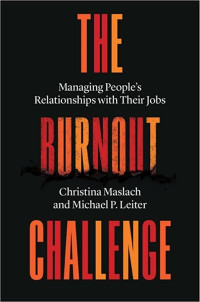 Harvard University Press, 2022, 272 pages.
Harvard University Press, 2022, 272 pages.
How can we stop the burnout epidemic? In The Burnout Challenge, scientists Christina Maslach and Michael Leiter explain the causes of burnout and how to counteract it—not just individually, but on a widespread basis.
While many employers pressure employees to prevent burnout in themselves with self-care (mindfulness training, exercise, therapy, and more), Maslach and Leiter argue that workplaces need to change, too. The feelings of exhaustion, disengagement, and lack of efficacy associated with burnout fester in places that don’t provide workers with reasonable workloads, appropriate recognition, supportive colleagues, a sense of autonomy and meaning, or fair treatment.
The solutions to burnout may be multi-pronged, but the book provides concrete ideas that can make a difference. The authors write, “If you take these lessons to heart and start putting them into practice, you can make progress toward making the experience of work more fulfilling, motivating, and viable—for yourself or, as a manager, for others in your organization.”
The Myth of Normal, by Gabor Maté and Daniel Maté
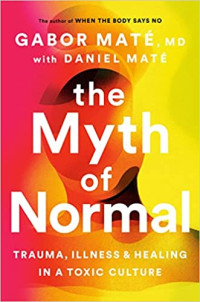 Avery, 2022, 576 pages.
Avery, 2022, 576 pages.
“Life…it’s just the way it is.” Per Gabor and Daniel Maté, this view is wrong. Living doesn’t have to be taxing. Ill-being doesn’t have to be accepted. Trauma doesn’t have to be prevalent. Our emotional, physical, and spiritual decay isn’t normal. That’s the myth.
In The Myth of Normal, the authors use science, inspiring stories, and clinical wisdom to demonstrate that we really are products of our environment. For example, they argue that our childhood experiences—and living in a culture where loneliness, materialism, and addiction are common—shape our entire being. Indeed, chronic mental and physical illness are less likely byproducts of “bad” genes and more likely byproducts of harmful circumstances.
In this wide-ranging, poetically written book, the authors offer “pathways to wholeness” including authenticity, compassion, and cognitive restructuring. Follow their advice, and you may be able to achieve a different kind of normal.
The Sleep Prescription: Seven Days to Unlocking Your Best Rest, by Aric Prather
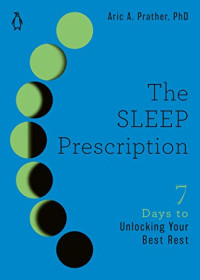 Penguin Life, 2022, 224 pages.
Penguin Life, 2022, 224 pages.
Tired of paying interest on “sleep debt”? In Aric Prather’s book, we learn about how ordinary behaviors and choices in daily life disrupt natural sleep processes and what we can do to get our sleep back.
The consequences of inadequate or poor-quality sleep are dire. You get sick more easily, often, and for longer and feel more pain; you are cognitively duller and your memory’s impaired; you are less empathic, friendly, and likable.
To avoid this, Prather offers a weeklong “recipe” of research-backed techniques for improving sleep, beginning with creating a sleep diary to establish the status quo. For each sleep-building technique, Prather shares intriguing stories from his sleep clinic at UCSF, flexible options for implementation, and a full explanation of the biology behind why it works.
You don’t need a prescription to benefit from reading The Sleep Prescription. As Prather writes, “When you sleep better, your whole life improves, creating a foundation for health and well-being.”
The Altruistic Urge: Why We’re Driven to Help Others, by Stephanie Preston
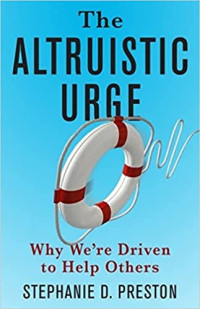 Columbia University Press, 2022, 344 pages.
Columbia University Press, 2022, 344 pages.
To witness suffering or imminent harm is to feel a deep impulse to do something about it. Beneath thoughts and feelings that affect our likelihood of taking action, our motivation to get involved comes first.
Stephanie Preston’s book The Altruistic Urge explains where that impulse to help comes from. Countering the pervasive belief that humans are primarily self-serving and aggressive, Preston’s book establishes mutual caregiving and protection as essential to evolutionary success. Her research with rodents, primates, and humans connects the altruistic urge to neurobiological pathways and circuits deep in the brain, and makes the case that wanting to assist each other is a hardwired, adaptive survival reflex that originates from our genetic mandate to keep offspring safe.
While we can think ourselves out of helping or blunt the altruistic urge with cultural norms and structural forces in society, what makes it come to life is simply believing that we can successfully help.
Conspiracy: Why the Rational Believe the Irrational, by Michael Shermer
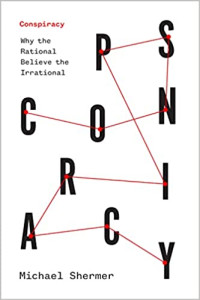 Johns Hopkins University Press, 2022, 376 pages.
Johns Hopkins University Press, 2022, 376 pages.
If you wonder how people can possibly fall for crazy conspiracy theories, look no further than Michael Shermer’s book, Conspiracy.
Shermer, publisher of Skeptic magazine, explains how conspiracy theories get traction by appealing to people’s long-held beliefs or prior experiences, tribal affiliations, and need to feel safe. And they can easily spread due to social-psychological factors, like confirmation bias, our tendency to oversimplify complex problems, and our desire to reduce anxiety.
Though we may think conspiracy theories appeal only to the naïve or uneducated, Shermer dispels that myth, showing how pervasive they really are. Fortunately, his book doesn’t leave readers feeling overwhelmed or powerless, but offers a primer on how not to be duped—and how to help others who’ve fallen prey to conspiracies.
Shermer calls on everyone to fight the spread of conspiracy theories. “It remains not just the domain of conspiracy theorists, but instead belongs to anyone who is curious and desires to understand the truth.”
Procrastination: What It Is, Why It’s a Problem, and What You Can Do About It, by Fuschia Sirois
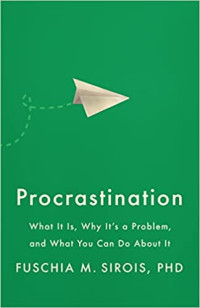 APA LifeTools, 2022, 273 pages. Read an essay adapted from Procrastination.
APA LifeTools, 2022, 273 pages. Read an essay adapted from Procrastination.
In Procrastination, psychologist Fuschia Sirois goes very deep into the science of putting things off. In doing so, she reveals quite a lot about how the human mind works and solves problems.
Sirois doesn’t want for you to make things worse by beating yourself up; indeed, she argues that the key to overcoming procrastination involves accepting your feelings and then embracing tactics like self-compassion and self-forgiveness to help you move past them. “When we see procrastination as being mainly an issue of difficulty in coping with negative emotions, then it becomes clear that if we want to reduce procrastination we need to understand and reduce the sources of these emotions,” she writes.
“Why we might see a task as being unpleasant, or why we may feel stressed from thinking about doing even the simplest of tasks, can vary across people, tasks, and circumstances,” says Sirois. It’s that compassionate understanding of procrastination as a very individual problem that will help readers to overcome it—in themselves, but also in coaching students, employees, and family.
The Secret Life of Secrets: How Our Inner Worlds Shape Well-Being, Relationships, and Who We Are, by Michael Slepian
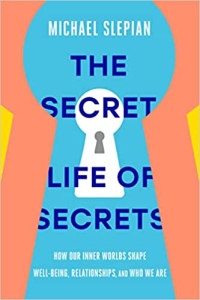 Crown, 2022, 256 pages. Read our review of The Secret Life of Secrets.
Crown, 2022, 256 pages. Read our review of The Secret Life of Secrets.
Is keeping a secret a bad thing? It may depend on the secret, your reasons for keeping it, and how much it weighs on your mind. In ethics professor Michael Slepian’s book, The Secret Life of Secrets, readers learn how ubiquitous secret-keeping is, the most common subjects of people’s secrets, and why secrets can sometimes harm us.
“People don’t like to be alone with their thoughts, and having a secret can evoke feelings of shame, isolation, and uncertainty,” writes Slepian. If a secret causes you to feel this way or to ruminate on negative aspects of yourself, it’s probably good to find a different way to cope, like processing your feelings or confiding in someone you trust.
Yet some secrets are best kept private, lest they harm relationships or reputations unnecessarily or prevent a greater good (think whistleblowers keeping their evidence secret until the big reveal). Slepian offers guidance on how to decide whether to keep or reveal a secret, while recognizing that the choice must always be ours alone.
Restoring the Kinship Worldview: Indigenous Voices Introduce 28 Precepts for Rebalancing Life on Planet Earth, by Wahinkpe Topa and Darcia Narvaez
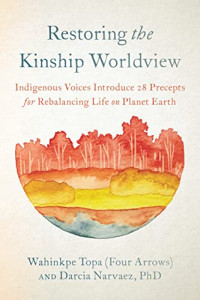 North Atlantic Books, 2022, 336 pages. Read our Q&A with Wahinkpe Topa and Darcia Narvaez.
North Atlantic Books, 2022, 336 pages. Read our Q&A with Wahinkpe Topa and Darcia Narvaez.
How can we solve today’s global challenges? In their book, researchers Wahinkpe Topa and Darcia Narvaez propose creating a more “sacred, unified, and moral” way of being in the world based on ancient Indigenous wisdom. And they provide guidance on how to achieve that.
They describe an Indigenous “kinship worldview” as “not about domination or self-centeredness or anthropocentrism, but rather about collaboration and unification across human groups, animal species, plant species, waterways, mountains, everything that’s alive.” In the book, Indigenous leaders offer their perspective on topics such as community, nature, and death, followed by the authors providing scientific findings and personal experiences to help validate each leader’s message. For example, in a chapter on “heart wisdom,” Aleut elder Ilarion Merculieff describes the importance of centering ourselves in our heart to gain humility and wisdom—supported by research linking the heart’s vagal tone to more wise, humble reasoning.
Overall, the book offers hope for creating a more harmonious world.
Humble: Free Yourself From the Traps of a Narcissistic World, by Daryl Van Tongeren
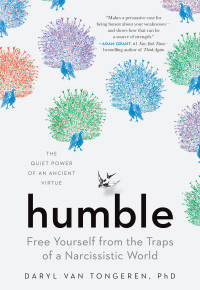 The Experiment, 2022, 304 pages. Read an essay adapted from Humble.
The Experiment, 2022, 304 pages. Read an essay adapted from Humble.
Why would you want to read a book about humility? After all, many of us are probably looking to bolster our confidence—and unless we’ve been called arrogant by a partner or boss, humility is probably low on our self-improvement list.
But humility has many surprising benefits, explains researcher Daryl Van Tongeren in his new book. It can help us accept ourselves for who we are, have more authentic relationships, and achieve more success in life.
Van Tongeren’s book also dispels many myths about what humility is, including how it is different from modesty and can actually go hand in hand with confidence. And he offers concrete tips on how to cultivate it that can help you be more open to feedback and less defensive.
Ultimately, humility is a skill that can not only help us as individuals in our close relationships but also as a society confronting the pressing issues of our time—which requires us to acknowledge where we might be mistaken and learn from each other.
Move: How the New Science of Body Movement Can Set Your Mind Free, by Caroline Williams
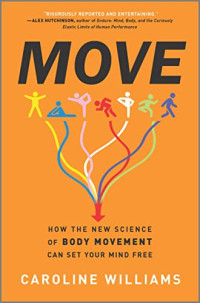 Hanover Square Press, 2022, 256 pages. Read our review of Move.
Hanover Square Press, 2022, 256 pages. Read our review of Move.
Sitting may be “the new smoking,” but the ills of a sedentary lifestyle don’t just affect our physical health but our mental health, too, writes journalist Caroline Williams in her new book Move.
Our human bodies evolved to move, she explains, and when we don’t move enough, they send signals to our brain that can create underlying feelings of depression or anxiety, insecurity or uncertainty. On the flipside, moving and building strength can create positive changes in our bodily systems that, when passed along to the brain, give us a subtle sense of happiness, confidence, and positivity.
Williams’s book provides an overview of the different types of movement we can do to bring about different benefits for our minds—from walking and dancing to core work and stretching. And she offers tips for incorporating mood-boosting, mind-nourishing movement into our busy lives.
“Moving is at the heart of the way we think and feel,” Williams writes. “If we stay still, our cognitive and emotional abilities become seriously compromised.”

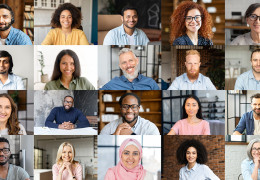




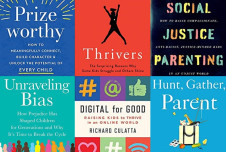
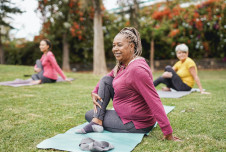
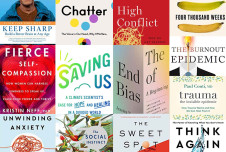
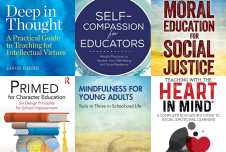

Comments